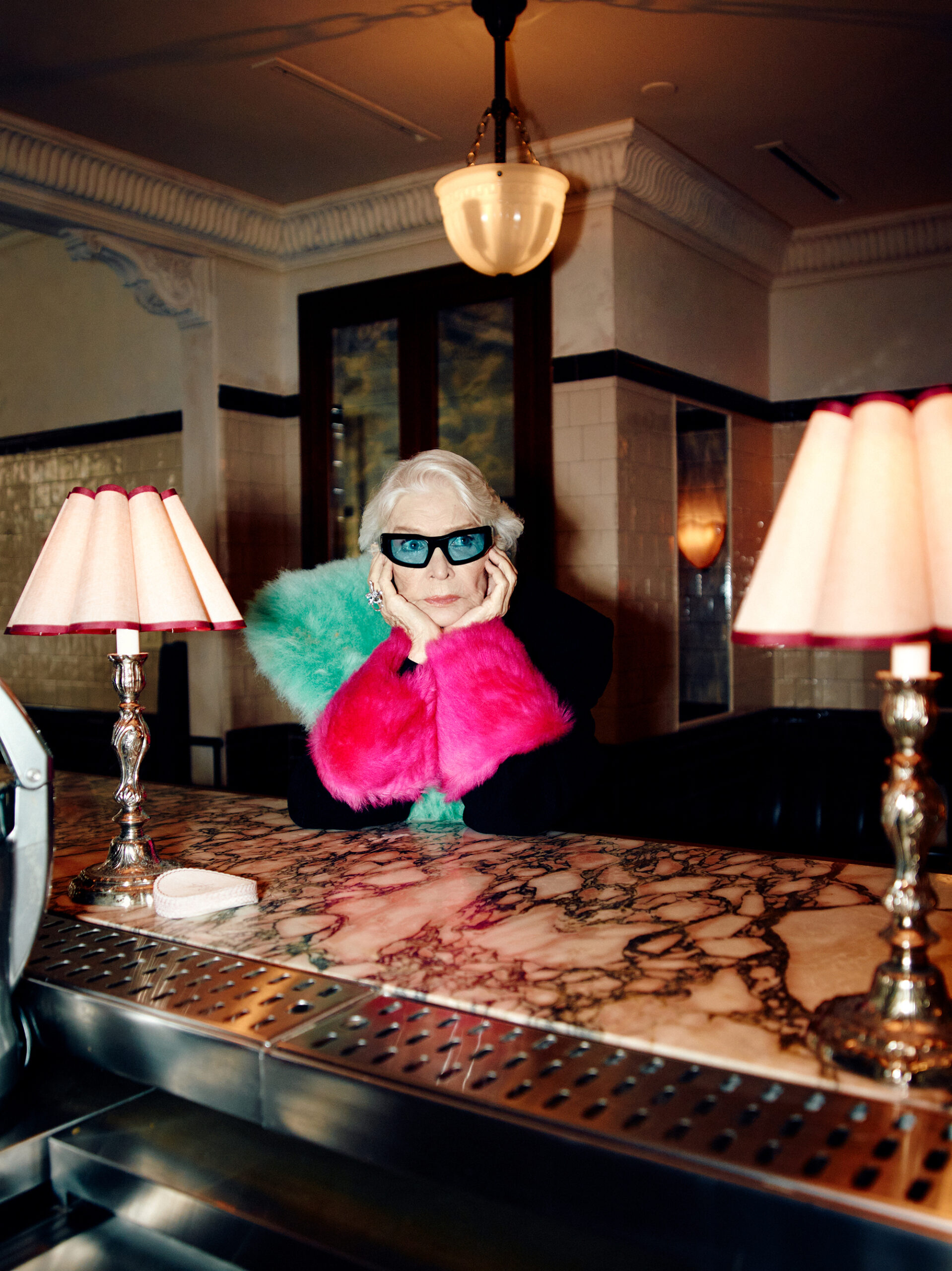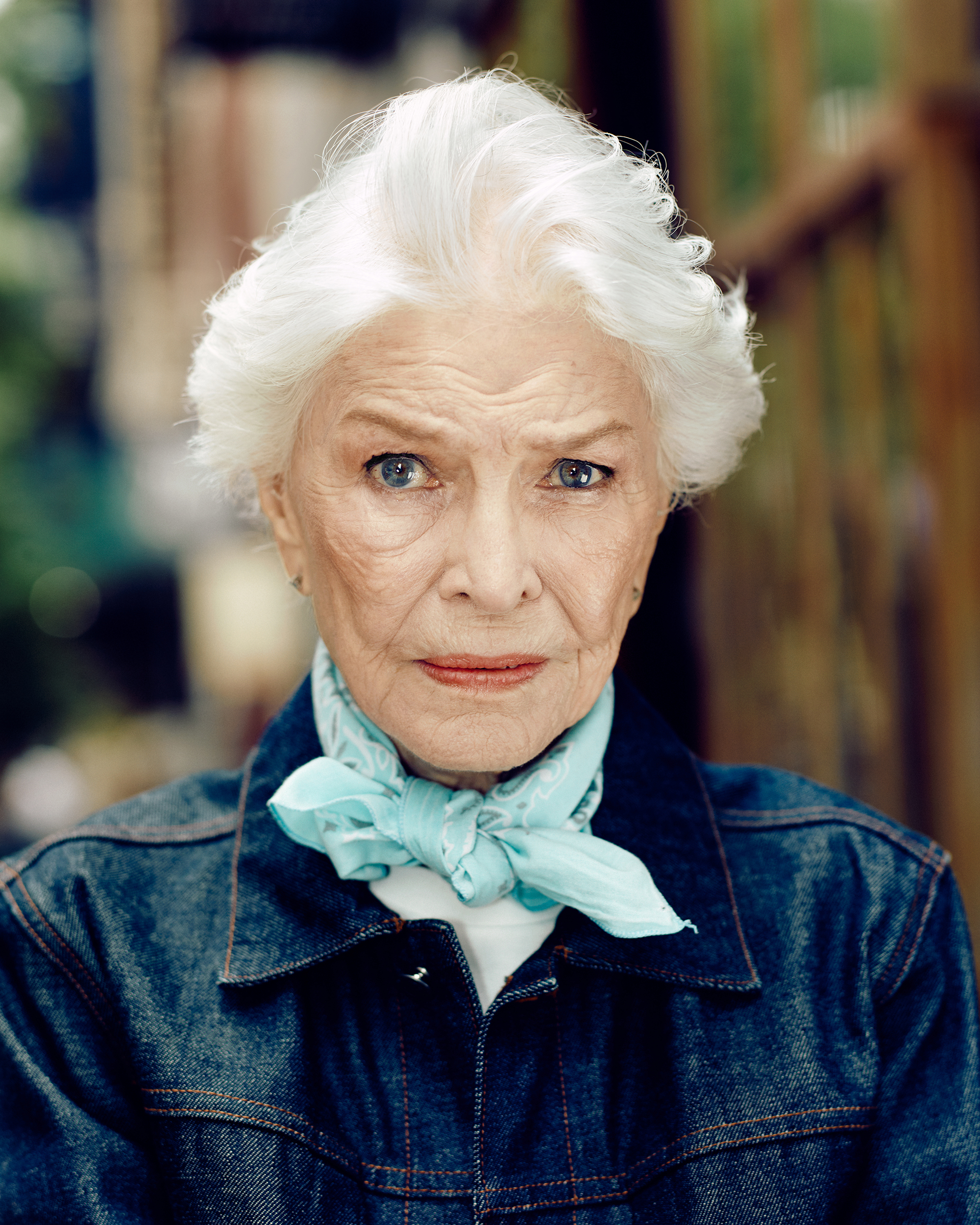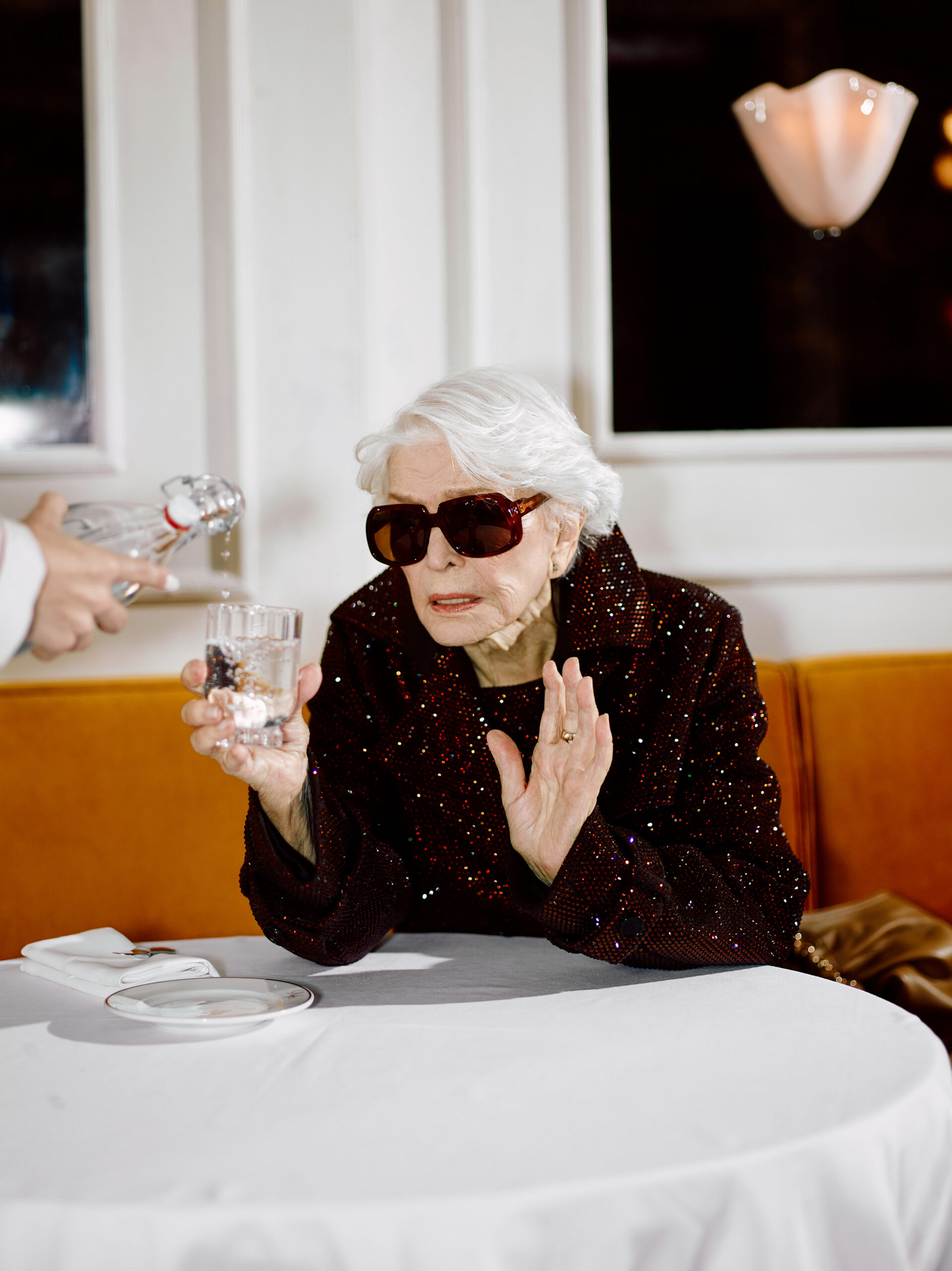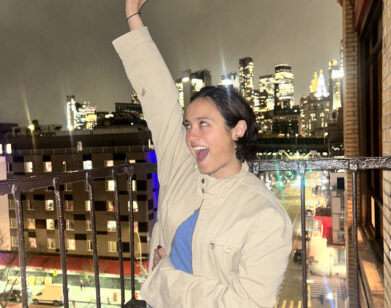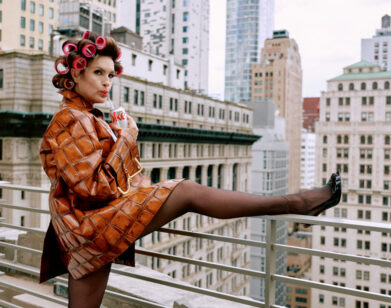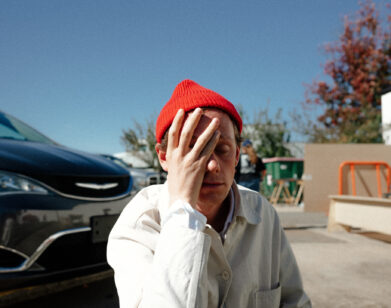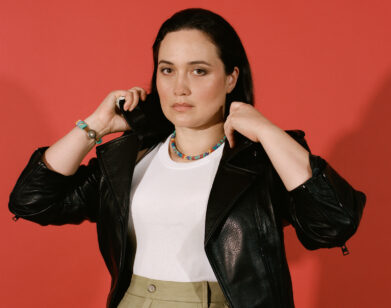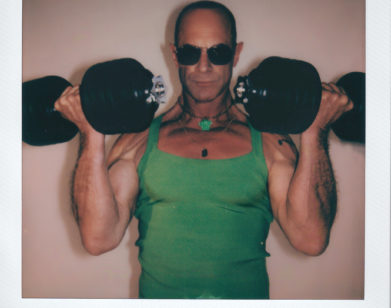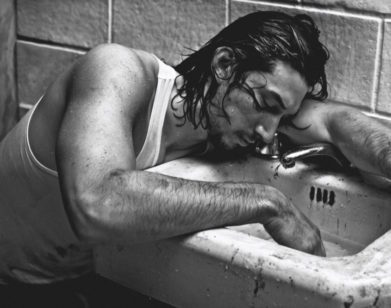icon
Ellen Burstyn Tells Christopher Meloni All of Her Secrets
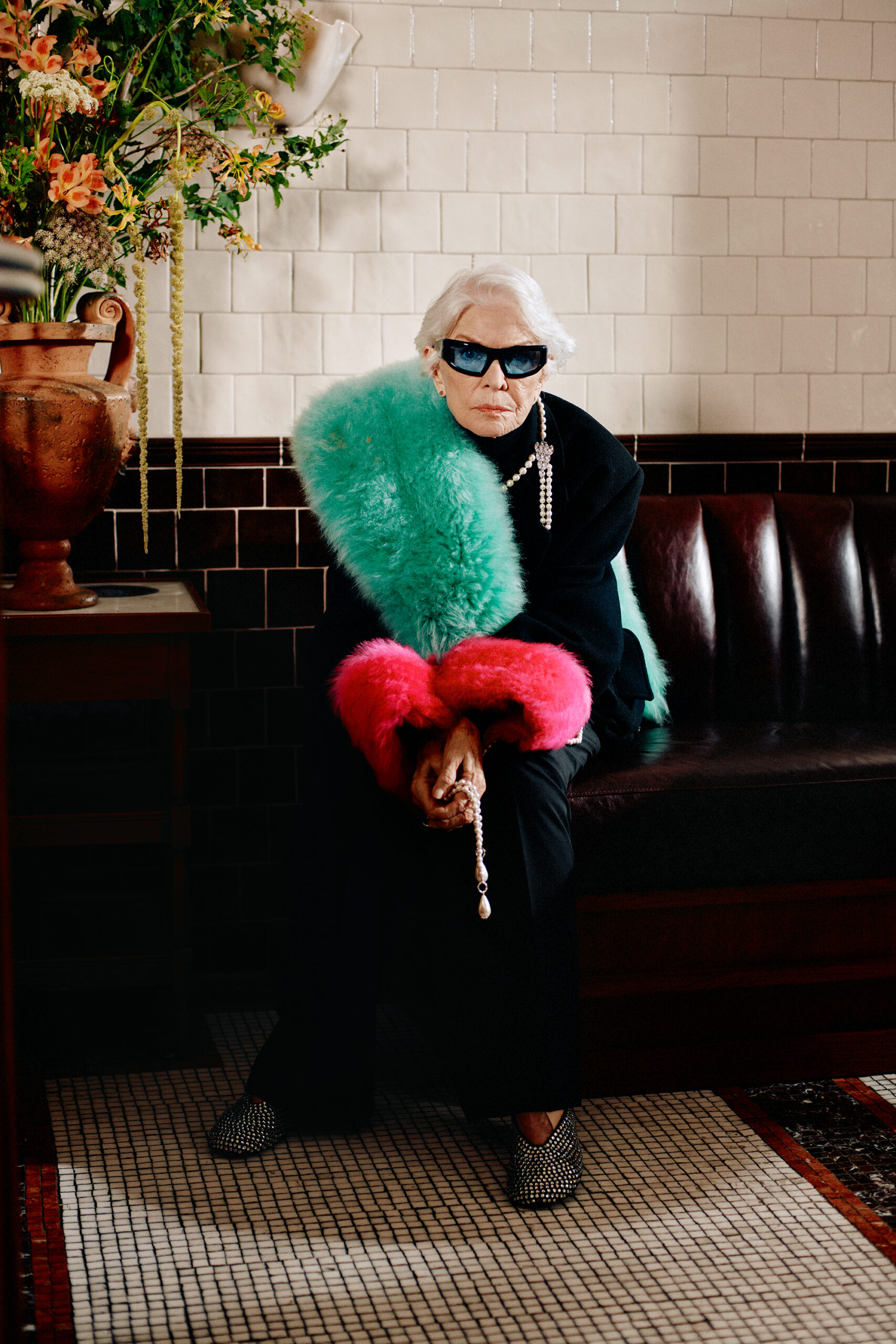
Ellen Burstyn wears Coat and Necklace Gucci. Pants The Frankie Shop. Sunglasses Port Tanger. Earrings (worn throughout) Ellen’s own. Ring Swarovski. Shoes Khaite.
Ellen Burstyn has been in the game for so long that her acting credits have their own Wikipedia page. Throughout her seven-decade career, the 90-year-old legend has experienced all the peaks and valleys that show business has to offer, from her meteoric rise in the ’70s with movies like The Last Picture Show and Alice Doesn’t Live Here Anymore, to her Y2K comeback in Requiem for a Dream. But the Oscar-winning actor’s signature role is still Chris MacNeil, the desperate mother looking for answers (and a good priest) in the 1973 horror classic The Exorcist. Fifty years later, Burstyn reprises the role in The Exorcist: Believer, but on this day, the person looking for answers is her Law & Order costar Christopher Meloni.
———
WEDNESDAY 2 PM JULY 12, 2023 NYC
ELLEN BURSTYN: Hello?
CHRISTOPHER MELONI: Ellen? It’s your son, Christopher Meloni.
BURSTYN: Hello, Christopher Meloni. How are you?
MELONI: I’m great. How are you?
BURSTYN: Pretty good. Crazed as usual, but other than that, normal. So what’s happening? Are you not shooting because of the writers’ strike?
MELONI: Well, I would still be on vacation, but I think the writers’ strike is going to slow things down a little bit.
BURSTYN: Where are you?
MELONI: I’m staring at a lake in Connecticut.
BURSTYN: Oh, how nice.
MELONI: What are you doing?
BURSTYN: Actually, I’m preparing a surprise party for a friend of mine tomorrow. I’m organizing and arranging and planning the menu for seven people that I’ve never met. But I’m looking forward to it.
MELONI: You certainly are fearless. Both onscreen and obviously off.
BURSTYN: [Laughs] When I think of some of the things I’ve done, I go, “What were you thinking?”
MELONI: [Laughs] So this is me interviewing you—
BURSTYN: You know what I was thinking about yesterday? One day on set [of Law & Order: Organized Crime] you said, “Why do you do this to me, Dimi?” It’s a line from The Exorcist. And I was so stunned because my son in real life says that line to me. When you said it, it was like I was in two realities at once.
MELONI: [Laughs] That’s very funny. Afterwards, I was like, “Since I’ve lost my mother a couple of years ago, you—in my life, in our work— you’re my mother.”
BURSTYN: Yeah. It’s very easy. It’s like slipping into a pair of old shoes. I slipped into being your mother.
MELONI: Well, I’m glad you say that because I feel the same way. So you really are busy these days.
BURSTYN: I know. This is so bizarre. I turn 91 in December and I’m busier than I can ever remember being at any point in my career. And I don’t understand it at all. I mean, what’s all this stuff about ageism in Hollywood? How did I get left out of it?
MELONI: [Laughs] Well, what do you attribute it to?
BURSTYN: I don’t know, except possibly that everybody else who could play those parts has already died, so I’m the only actress still standing who can play the great-grandmother or something.
MELONI: Oh, I don’t know. There are not too many of you, though.
BURSTYN: No.
MELONI: And I was looking at your biography. Oh my gosh.
BURSTYN: You read my biography?
MELONI: Well, yeah. I was like, “Let me check what Wikipedia has to say.” It took me, like, an hour and a half to get through your bio.
BURSTYN: I’ve never read it. I can’t because I’m afraid that they took things from my memoir and I was overly honest in it. It makes me cringe when I think of all the things I said.
MELONI: When did you write your memoir?
BURSTYN: At least 10 years ago, maybe 15, maybe more.
MELONI: And you wish you hadn’t shared some of your stuff?
BURSTYN: Well, every time I’d come to a point in my life where a certain thing happened, I’d say, “Oh, god. I can’t write that.” And then they’d go, “If you’re going to tell the story, tell the story.” And I would write it, so it’s embarrassingly honest. The day it came out, I went, “Am I crazy? Why did I do that?” [Laughs] Now, the world knows all my secrets, but what’s done is done.
MELONI: Do you think that’s part of your success, that you couldn’t help yourself and that’s kind of how you act?
BURSTYN: [Laughs] That’s very funny. Maybe.
MELONI: You’ve got that relentless search to find the truth, and the truth is usually very vulnerable.
BURSTYN: Yeah. Well, I do try to be real. My standard for any moment in a scene is, “Is this real to me?”
MELONI: I don’t know if I’ve ever worked with a more open actor. When I said that you’re fearless in your personal life, and you’re fearless when you act, I meant it. You’re always open to finding the thing that works for you.
BURSTYN: I mean, that’s my training. That’s what I aspire to. If I ever feel fake, it’s like eating rotten food or something, it’s just wack. So I protect myself from ever feeling that by being as open as possible.
MELONI: What are your greatest strengths and greatest weaknesses as an actor?
BURSTYN: I think that’s for somebody else to say. I know that being real and not faking is my guide.
MELONI: Right.
BURSTYN: And my weaknesses, I don’t know—oh I know. Doing accents. [Laughs]
MELONI: Do you do accents?
BURSTYN: I have a couple of times and not very successfully. One time I was doing a very dramatic television show with a British accent, and in one place it just fell away. When I saw it, I just hung my head in shame. Oh god, it was just horrible.
MELONI: I understand that.
BURSTYN: It goes along with not really having a good ear. I can’t carry a tune very well. I would say that’s my weakness.
MELONI: Yeah. So you’ve been in the biz for over 70 years.
BURSTYN: Right.
MELONI: Is there a particular time that has been the best?
BURSTYN: Definitely the ’70s. That was when the studios were still run by filmmakers, not by corporations. And the scripts were submitted because somebody was interested in that story and wrote it, and a producer liked it and thought it would make a good movie. Not because it had been fed into a computer and said, “Well, the first version made X number of millions, so the second one will make X number of millions and it has to have a big name.”
MELONI: Right.
BURSTYN: In the ’70s, I made pictures like The Last Picture Show where we went to a small town in Texas and met the locals and all lived together in the same hotel, isolated from everything else. We spent all our time together and rehearsed the scenes. It was done like a play. And the same with The Exorcist. We rehearsed for a couple of weeks on set before we started shooting.
MELONI: Was that shot in D.C. or New York?
BURSTYN: My house, where it all takes place, was built on a soundstage in New York City. But then everything outside was in D.C. But we rehearsed that. We got into the script, we researched, we prepared. And other films I made in that time like The King of Marvin Garden, that Bob Rafelson directed—that was one of my favorite films, with Jack Nicholson and Bruce Dern. You saw that?
MELONI: Yeah. And Alice Doesn’t Live Here Anymore?
BURSTYN: That’s right. And again, with Marty [Martin Scorsese], we rehearsed everything the night before and did improvs, and the improvs were turned into script. We had a real understanding of the characters and the reasons they did what they did. It was a time when it seemed like an art form more than a corporate business. So I’ll always treasure those films and experiences like The Exorcist. It was a very deep experience making that film.
MELONI: Why?
BURSTYN: Well, first of all, it was a bestselling book, and it was based on an actual historic case. A lot of the incidents that are onscreen were from the report of what this boy went through—it was a boy, not a girl. That’s very psychologically profound.
MELONI: Sure.
BURSTYN: And the film is not a typical scary movie.
MELONI: Not at all.
BURSTYN: It’s a human drama and a psychological drama. It’s the only film I’ve made in my 70 years in the film business that’s in the Library of Congress. It’s a historical achievement.
MELONI: Well, I don’t think there’s ever been anything like it. It was also, I think, if adjusted for the dollar, the highest grossing R-rated movie.
BURSTYN: Oh, is it? I didn’t know that.
MELONI: Yeah, so it obviously hit a chord with people.
BURSTYN: Well, I’ve seen it a couple of times lately. I attended the 45th anniversary showing in L.A., and my granddaughter had never seen it. I wanted her to see it in a theater, because it’s a group experience, so I had a screening. Everybody said the same thing about it, which was, “Yes, it’s scary, but wow, it’s a good movie.” Billy Friedkin shot it in a way that established the relationship with the mother and daughter so you got into them and their lives before all the scary stuff started happening.
MELONI: I saw it when I was a little boy, about 12 years old, maybe 13, and when you were reaching out to the priest, Jason Miller, I felt as though I was watching someone having a nervous breakdown.
BURSTYN: Wow.
MELONI: You’re imploring him to help you. Even as a child, that to me was what was so impressive—those quiet moments, those moments of desperation, those moments of seeing a human being at a loss. And Jason Miller’s character is the same way. Him struggling with his own insecurities and problems. It’s a really interesting psychological study.
BURSTYN: Yeah.
MELONI: During the latest one, The Exorcist: Believer—
BURSTYN: Is that a new title for it? [Laughs] I didn’t know that. Last I heard it was called Brain Waves.
MELONI: Wow.
BURSTYN: I’m glad to know the title of the movie I did. [Laughs]
MELONI: I’m full of information. You stick with me, kid.
BURSTYN: Yes.
MELONI: Did any experiences on the set bring you back to the original?
BURSTYN: Yeah. First of all, I don’t know if anybody in the history of filmmaking has ever recreated a character they did 50 years ago. It sounds like a first to me. [Laughs]
MELONI: It has to be.
BURSTYN: Yeah, because there aren’t that many people who are still working in the business after 50 years, let alone recreating a character they did that long ago. I have a real connection and feeling for the other actors in the film, because we all went through something. You don’t make a movie like that without going through a lot of real, emotional stuff. So the things that happened in that film, that touched on things from the first film, grabbed me. But I don’t want to reveal what they were, because the film’s not out yet. Nobody’s seen it.
MELONI: Okay.
BURSTYN: David Gordon Green, who wrote and directed it, I have a lot of respect for him. He’s a deep thinker, and it shows in the script. I’m anxious to see how people respond to it, because it’s very different from the first one, but certain elements are the same.
MELONI: How do you keep going? Do you wake up every day and say, “I can’t wait to work?”
BURSTYN: I try to have the first words out of my mouth be, “Thank you.” Thank you that I’m alive. Thank you that I’m safe. Thank you that I’m healthy. Thank you that I’m 90 and still going. Thank you for my doggies. I mean, I have a lot to live in a state of gratitude for.
MELONI: I say the same thing every time I look at the call sheet and see that I’m going to act with you that day.
BURSTYN: Oh, thank you. It’s fun for me. And by the way, I want you to know that I’m more famous for this show than for anything I’ve done in my 70 years in the business.
MELONI: [Laughs] Yes.
BURSTYN: And furthermore, I get people stopping me in the street and saying, “Are you going to be on the show again soon?”
MELONI: I get the same thing. They don’t care about me. They want to make sure that Bernie’s going to be on the show.
BURSTYN: [Laughs] It’s so fun.
MELONI: So here you are. You have this exceedingly rare career. Is there any role that you didn’t get, that you think about every now and then? Or do you just keep moving?
BURSTYN: Worse than that are the roles that I turned down. One Flew Over the Cuckoo’s Nest and the actress who played it, Louise Fletcher, won an Oscar for it.
MELONI: Nurse Ratched. Oh my, why’d you turn that down?
BURSTYN: I was married to a mentally ill husband at the time, and I was spending a lot of time in mental hospitals and with other patients. And the idea of playing a mean nurse just rubbed me the wrong way. I didn’t want to take on that particular psyche.
MELONI: Yeah.
BURSTYN: It was the right decision at the time, but in hindsight it was hard to have missed that opportunity, because I’d won the Oscar the year before and thought, “Could I have won two times in a row?”
MELONI: So what do you do when you don’t act?
BURSTYN: I walk my doggies. I read an awful lot. I go to concerts. I play with my friends, have people over.
MELONI: You know how to live life. Are you ever going to go back on the stage?
BURSTYN: Absolutely. There’s a playwright I’m talking to now and we might do something together. Your memory has to be perfect if you do a play. My memory used to be perfect. I don’t know if it still is, so it’s a little scary, but my long-term memory is still intact. Short-term memory is a little sketchy. But you can get a play into your long-term memory, so I think it’d be okay.
MELONI: You’ve been at it so long, you just need to work that memory muscle.
BURSTYN: I memorize poems a lot. I love poetry. I’m working on a book, actually, of my favorite poems.
MELONI: Who’s one of your favorite poets?
BURSTYN: My favorite poet, hands down, is Mary Oliver. But I have a lot of favorite poets. I have a friend, Rayne O’Brian, who is a poet, and we’ve known each other since we met at our audition for the Jackie Gleason live show in 1956.
MELONI: Oh, my.
BURSTYN: And we both got chosen and did the show. It was when he was doing a live variety show every Saturday. So we spent our Saturdays together for a year and became best friends. And now she’s a wonderful poet and we’re both in our nineties, so I’m including her in my book.
MELONI: How beautiful. I still marvel at how strong you are.
BURSTYN: Yeah. Well, the secret of that is eating well, exercising, not drinking, not smoking, not doing drugs, and deciding to live healthy. That’s what I decided after doing all those bad things for a couple of decades.
MELONI: Are you vegetarian?
BURSTYN: Yeah.
MELONI: How long have you been a vegetarian?
BURSTYN: On and off since I was a little girl and found out that a hamburger was a dead cow. It kind of spoiled the taste for me. I do eat fish, and for a while I was eating chicken, but one day I was walking up a country road and there were these beautiful chickens with big curly tails. I went, “Oh no, no. I can’t eat chicken anymore, either.” Once something in this life form becomes real to me, it stops being food. Now don’t tell me how pretty fish are, please, because then I wouldn’t have anything I can eat.
MELONI: Just don’t go swimming in the ocean. [Laughs] Do you have any jobs lined up?
BURSTYN: Well, I don’t have any for July or August. And then in October, the new Exorcist will be released. So I’ll be busy with press around that time.
MELONI: Right.
BURSTYN: But I have two pictures to do this fall. I’ll be juggling. So I hope I get to be your mother.
MELONI: Me too.
BURSTYN: It’s always nice to be your mother. Let’s do it again.
MELONI: Well, what can I tell you? Continued success, Ellen. [Laughs]
BURSTYN: Thank you. I know it’s hard to say to somebody like me. [Laughs] But I sure hope so. I plan to keep on trucking as long as I can.
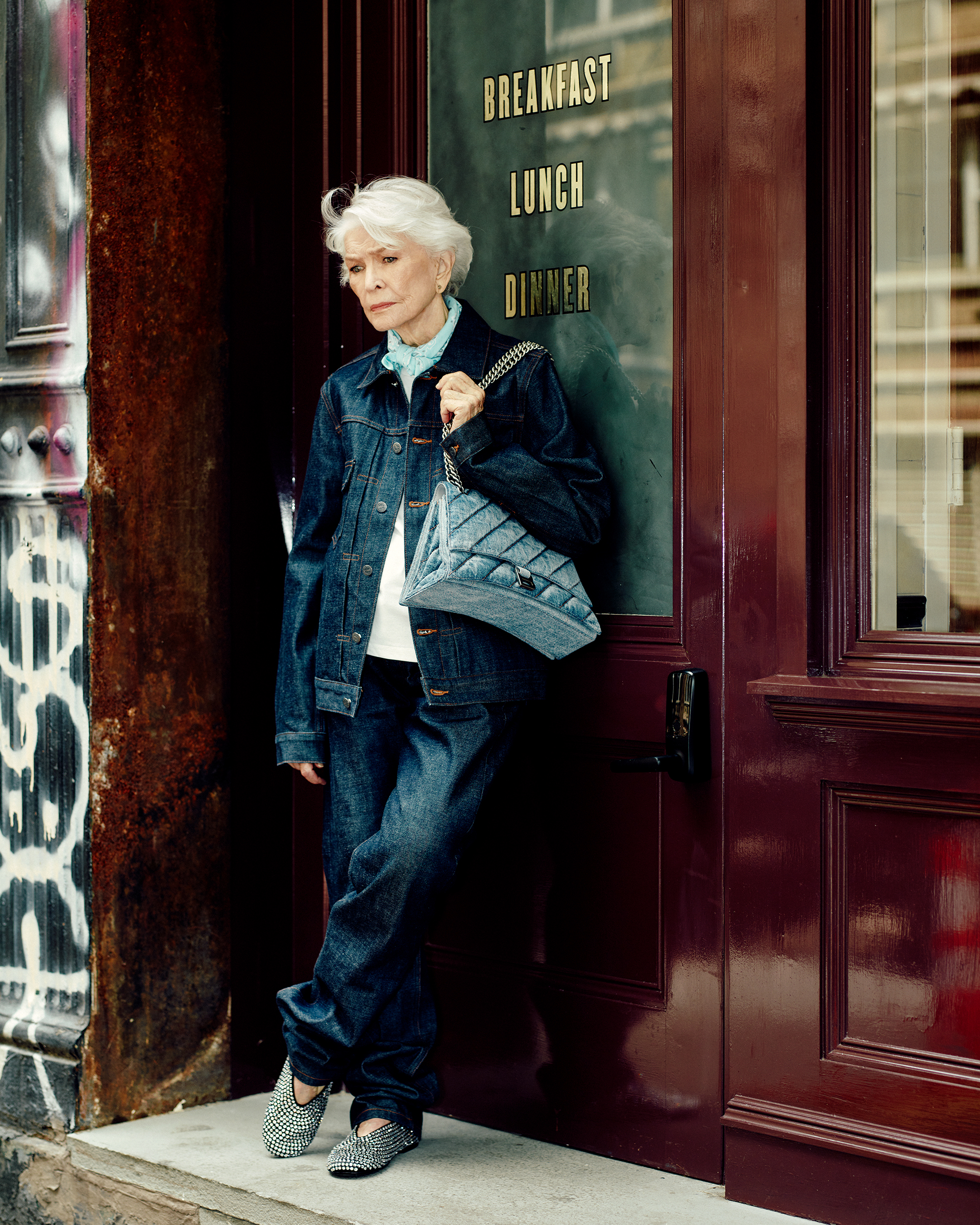
Jacket and Trousers A.P.C. Shirt The Frankie Shop. Handkerchief Ellen’s own. Bag Balenciaga. Shoes Khaite.
———
Hair: Kabuto Okuzawa using Oribe at Walter Schupfer Management.
Makeup: Michaela Bosch at Bryant Artists.
Photography Assistant: Pablo Isaak Perez.
Fashion Assistant: Nicholson Baird.
Location: Raf’s.

